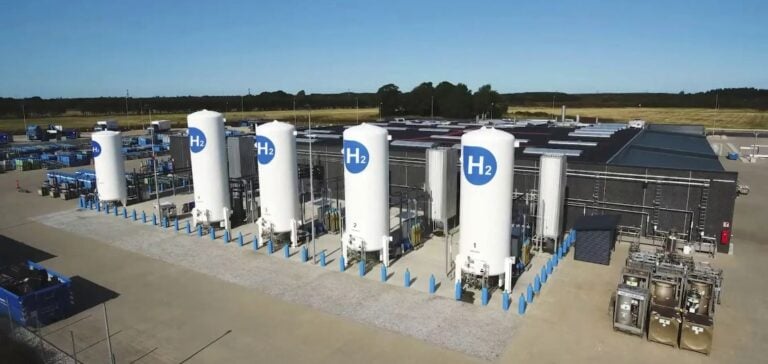The Norwegian government, through the agency Enova SF, recently announced funding of EUR 65 million to support five hydrogen production projects along Norway’s coastline. This initiative is part of the country’s strategy to reduce emissions in its maritime sector by developing a hydrogen value chain. By strengthening local infrastructure, Norway hopes to inspire other European countries to pursue a similar path toward clean energy.
A national strategy for hydrogen
The projects funded by Enova aim to establish a production capacity of around 100 megawatts (MW), which is estimated to produce about 40 tonnes of hydrogen per day. Located in key coastal areas, these projects benefit from varying financial support to encourage an equitable distribution of capacities. Through the “Hydrogen Production for Maritime Transport 2027” initiative, the Norwegian government seeks to lay the foundation for a network of hydrogen production and distribution.
Supported production projects and regional development
The Enova program has selected five major projects:
1. **GreenH at Slagentangen** (10 MW): with a grant of NOK 144 million, in partnership with Grieg Edge and Esso Norge.
2. **Kaupanes Hydrogen at Egersund** (20 MW): a collaboration with Hydrogen Solutions, Dalane Energi, and Eigersund Naering og Havn, funded up to NOK 206 million.
3. **HyFuel at Floro** (20 MW): a project supported by Hydrogen Solutions, Fjord Base, and Sogn og Fjordane Energi, benefiting from NOK 180 million.
4. **GreenH at Kristiansund** (10 MW): funded with NOK 118 million.
5. **GreenH at Bodo** (20 MW): supported with NOK 128 million.
These initiatives aim to create an accessible hydrogen supply network for maritime actors. By distributing production sites across the territory, Norway seeks to ensure optimal hydrogen access along its coast.
Alignment with Norway’s climate goals
Norway’s support for hydrogen projects illustrates its commitment to meeting climate goals set under the Paris Agreement. The maritime sector, responsible for a significant share of the country’s emissions, is at the core of this decarbonization strategy. Transitioning to hydrogen as a fuel source is seen as essential to reduce the carbon footprint of maritime activities. Tore O. Sandvik, Norway’s Environment Minister, praised the initiative, emphasizing its potential to encourage other European countries to take similar measures.
Economic and industrial ambitions
Beyond the environmental aspect, this strategy also aims to boost the local economy. By supporting these projects, Norway promotes job creation and encourages private investment in the hydrogen sector. Each project will generate jobs in the coastal regions involved and is expected to attract suppliers and auxiliary services.
Norway’s positioning in the European market
By investing in hydrogen for maritime transport, Norway hopes to establish itself as a leader in the European hydrogen economy. Hydrogen is a priority in the EU’s decarbonization strategy, and Norway could become a preferred partner for neighboring countries looking for clean fuel options. By setting up hydrogen production infrastructure ahead of other countries, Norway gains a strategic and technological advantage in the European market.
Challenges ahead for maritime hydrogen
Despite these advances, large-scale hydrogen production remains costly, and the infrastructure needed for distribution and use in maritime transport is still limited. The Norwegian government, through Enova, covers up to 80% of project costs, but long-term economic viability remains uncertain. Other aspects, such as establishing clear regulations for hydrogen storage and safety, will need to be addressed.






















